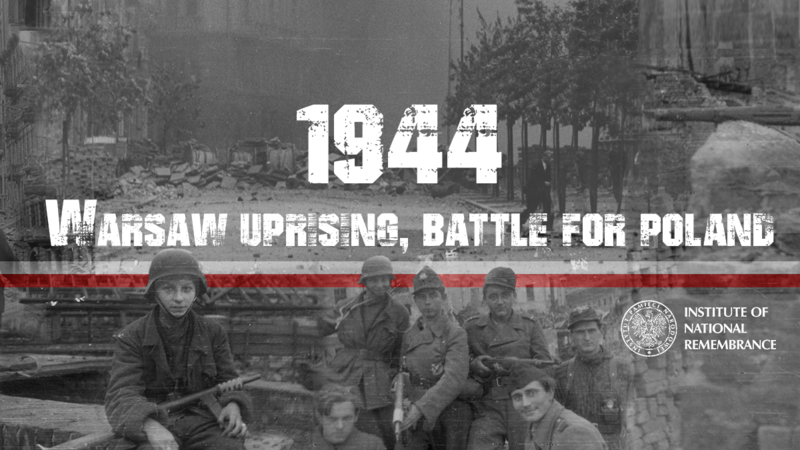President of the Institute of National Remembrance, Karol Nawrocki, Ph.D. paid homage to the insurgents on 1 August at 5:00 p.m. ("W" hour) at the Gloria Victis Monument at the Powązki Military Cemetery in Warsaw. Then, accompanied by Deputy President Mateusz Szpytma, laid a wreath on the burial mound with the ashes of over 50,000 residents of the capital who died in the Warsaw Uprising, and took part in an interreligious prayer at the "Fallen-Undefeated" monument. The IPN's branch offices are undertaking initiatives to commemorate the Uprising by paying tribute to the insurgents and civilians at memorial sites and by organizing various educational events, including city games, concerts and lectures throughout Poland.
-
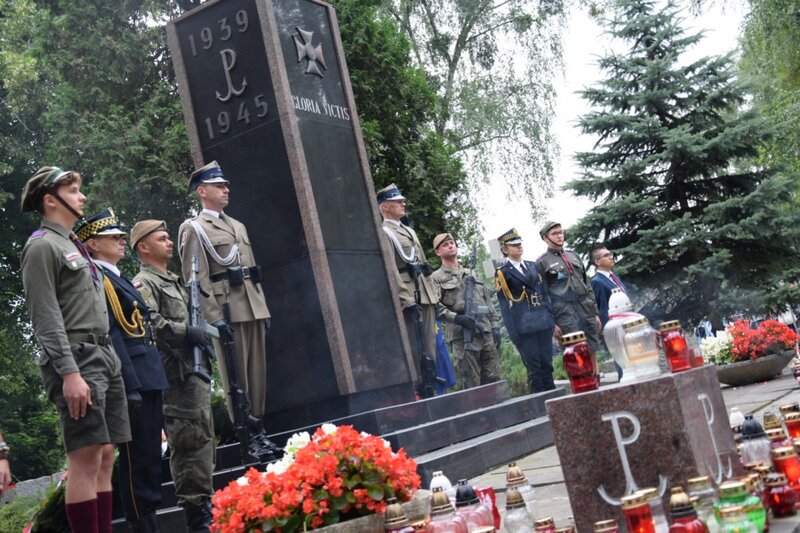
The IPN's President honouring Warsaw Insurgents at the Powązki cemetery -
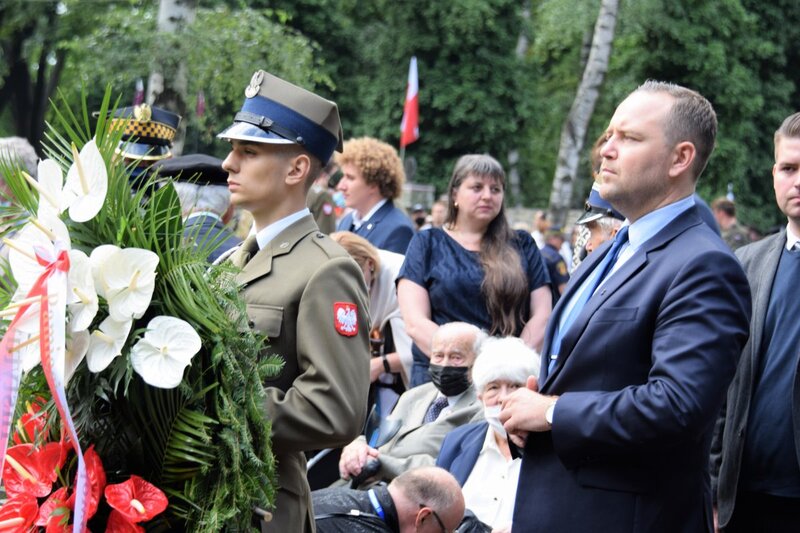
The IPN's President honouring Warsaw Insurgents at the Powązki cemetery -
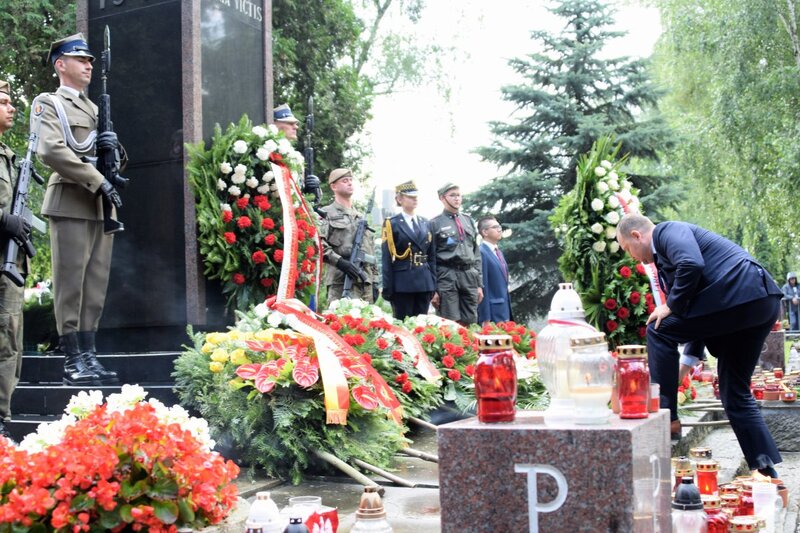
The IPN's President honouring Warsaw Insurgents at the Powązki cemetery -
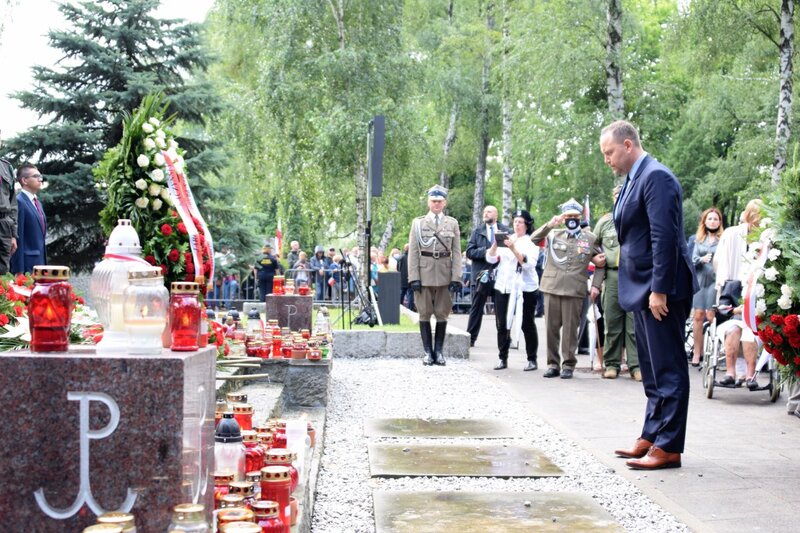
The IPN's President honouring Warsaw Insurgents at the Powązki cemetery -
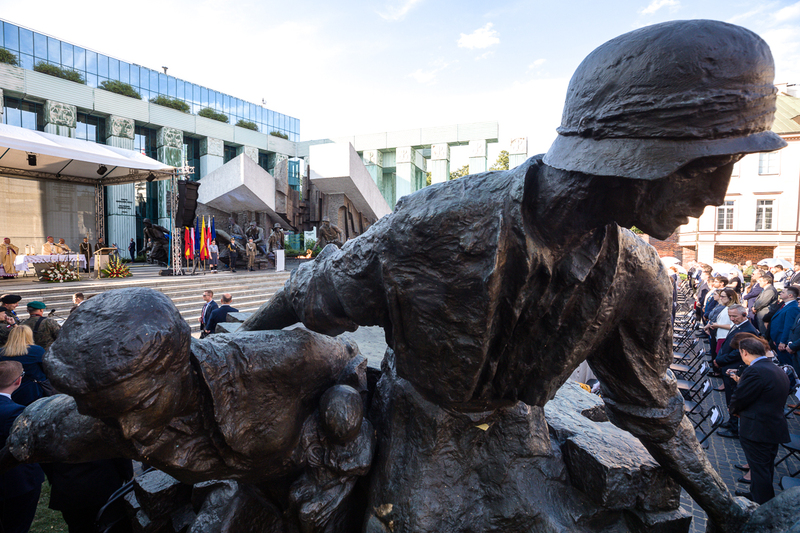
Warsaw Uprising commemoration in the Krasiński Square -
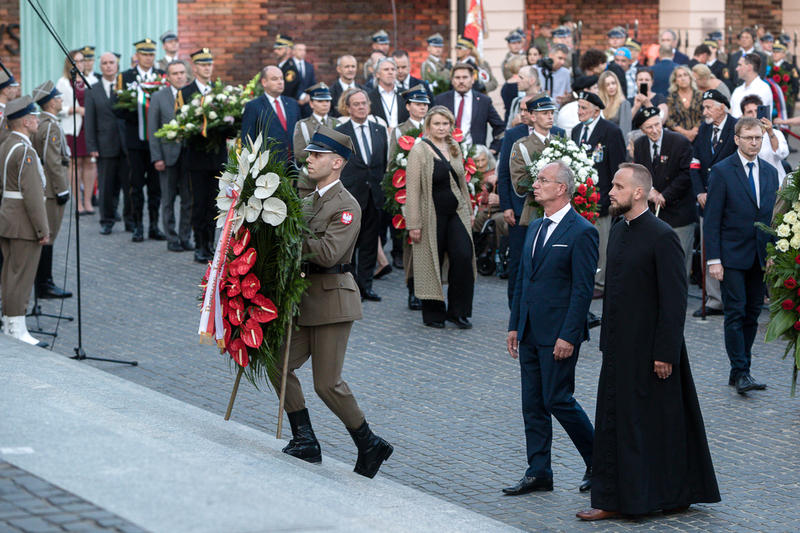
Warsaw Uprising commemoration in the Krasiński Square -
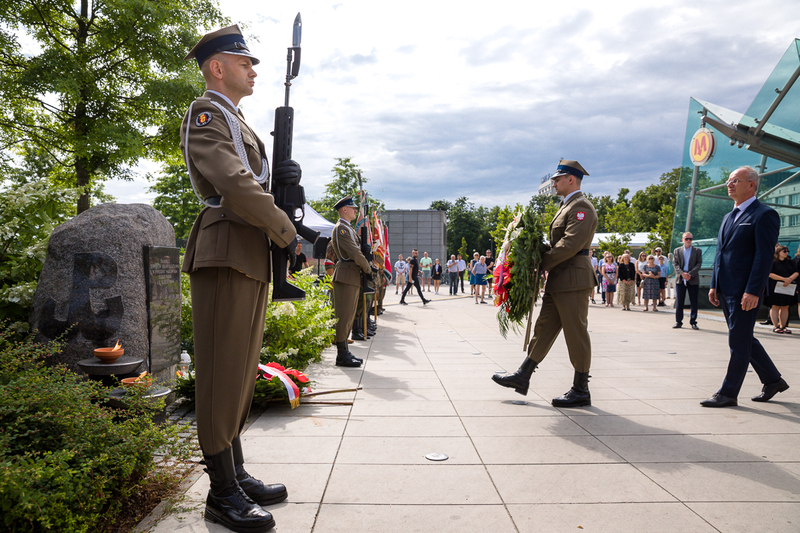
Tribute to Warsaw power plant defenders -
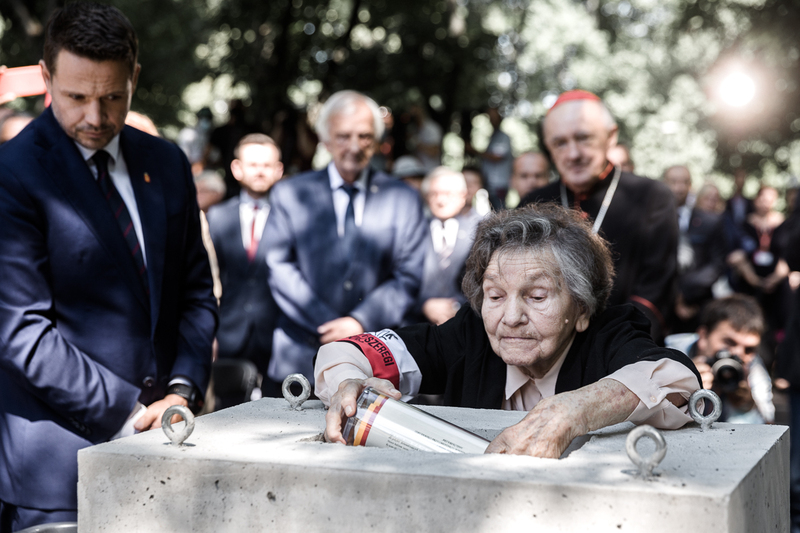
The ceremony of laying the cornerstone for the Memorial Hall at the Warsaw Insurgents Cemetery -
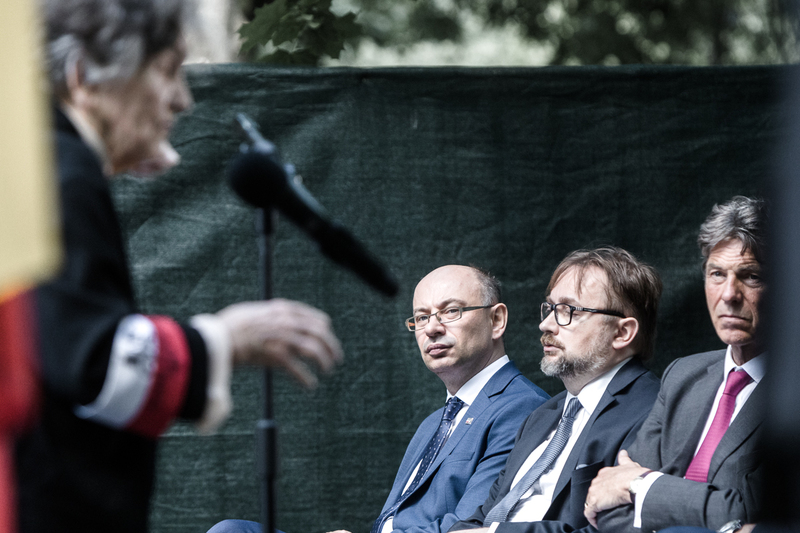
The ceremony of laying the cornerstone for the Memorial Hall at the Warsaw Insurgents Cemetery -
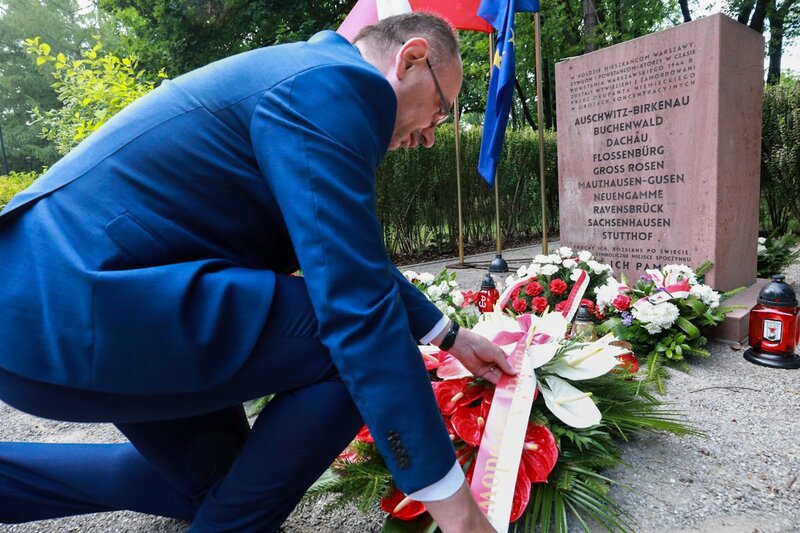
Mateusz Szpytma commemorating Warsaw residents deported to concentration camps -
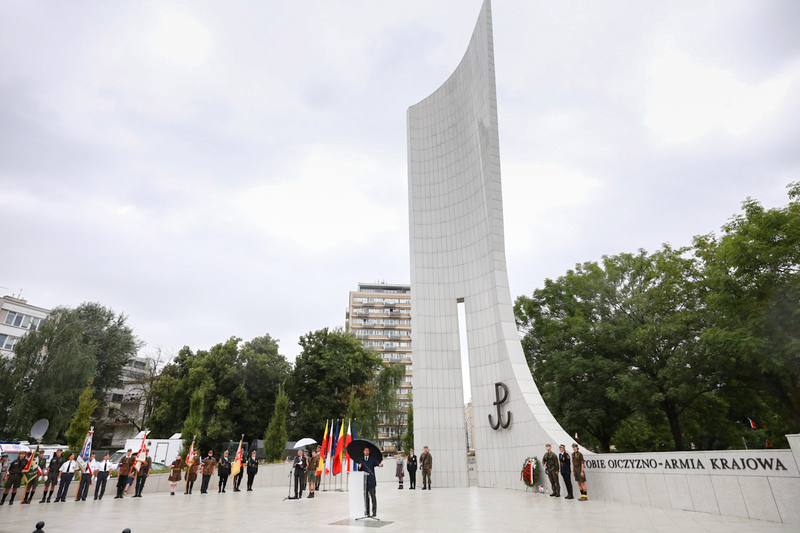
Warsaw Uprising commemoration at the Monument to the Polish Underground State and Home Army -
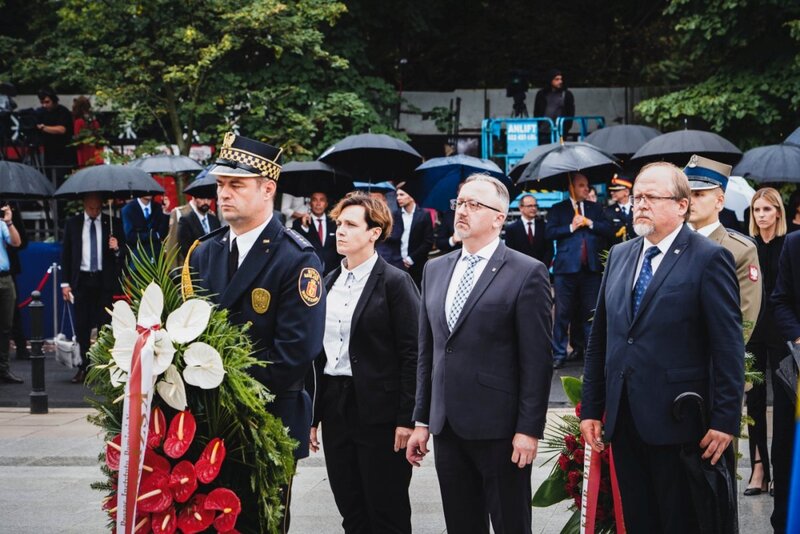
Warsaw Uprising commemoration at the Monument to the Polish Underground State and Home Army -
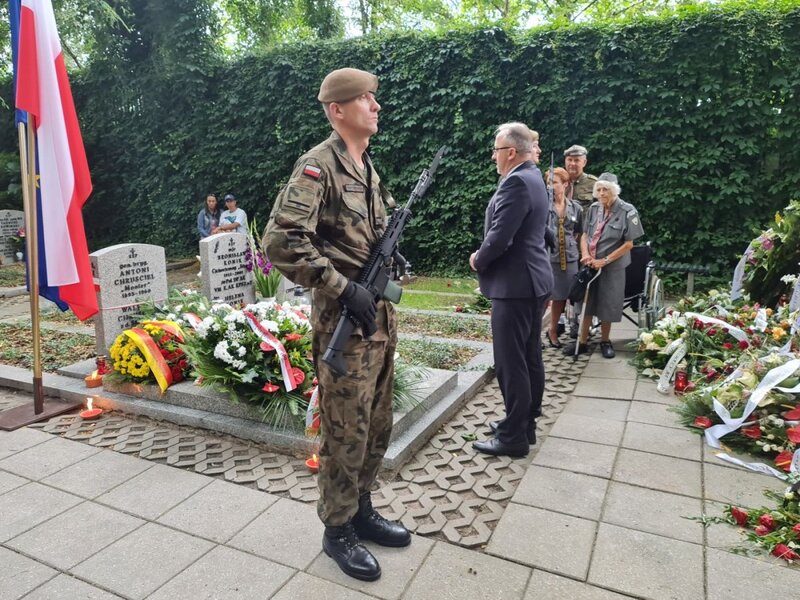
Karol Polejowski laying flowers on the grave of general Antoni Chruściel, CO of the Warsaw Insurgents -
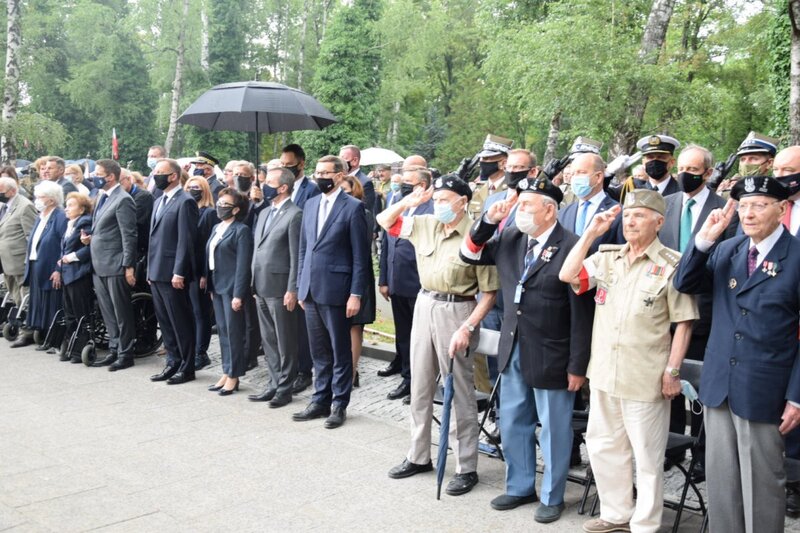
The IPN's President honouring Warsaw Insurgents at the Powązki cemetery -
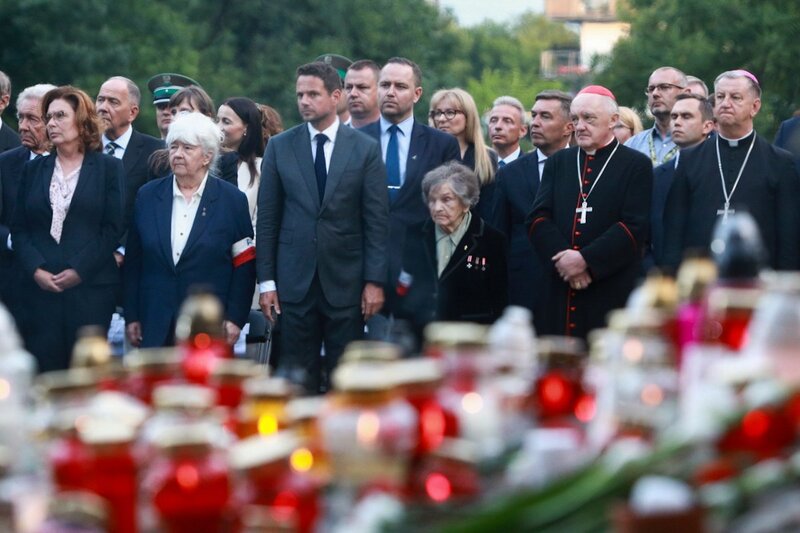
The IPN's President Karol Nawrocki paying tribute to murdered Warsaw residents -
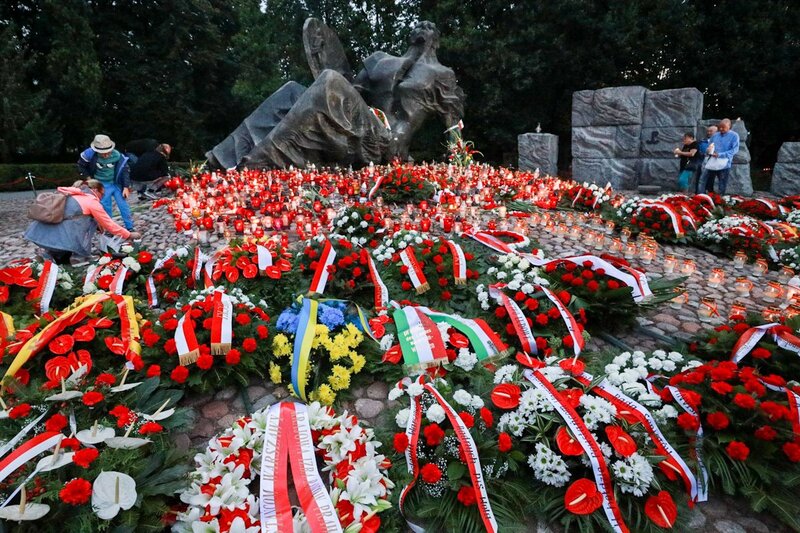
The IPN's President Karol Nawrocki paying tribute to murdered Warsaw residents -
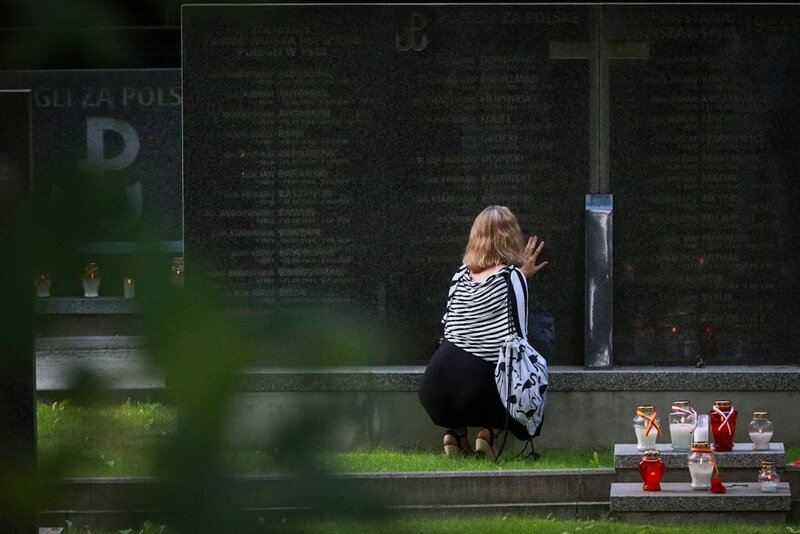
The IPN's President Karol Nawrocki paying tribute to murdered Warsaw residents -
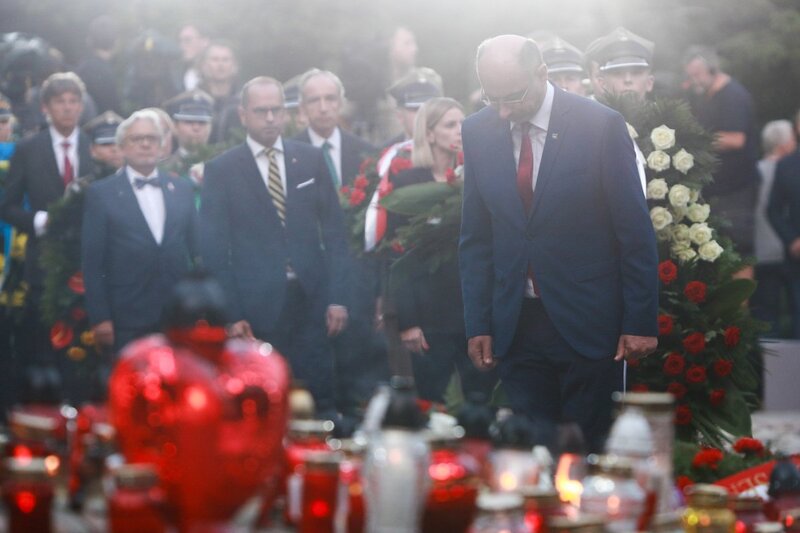
The IPN's Deputy President Mateusz Szpytma paying tribute to murdered Warsaw residents
***
By order of the Commander of the Home Army, General Tadeusz Komorowski "Bór", the Uprising in Warsaw began on 1 August 1944. The goal of the Home Army (AK) was to liberate the capital and seize it for a few days until the Red Army enters. This would enable the Delegation of the Government of the Republic of Poland to the Country, representing the legal Polish Government In Exile, to cast civil authority over Warsaw, thus awaiting the Soviets as free and independent hosts of their country. It was the last chance to save the independence of the Polish State, secretly betrayed by its Western allies - Great Britain and the United States.
The proportion of forces was extremely unfavorable for the Polish side. Among 50,000 soldiers of the Home Army, the National Armed Forces and the People's Army, only one out of 25 joining the fight was armed. Meanwhile, the Germans engaged the regular army, the SS, the Police, the Gendarmerie and auxiliary troops, supported by heavy artillery and aviation. Nevertheless, the insurgents achieved a number of significant successes. They regained control over considerable areas of the Śródmieście, Żoliborz, Mokotów, Wola and Ochota districts and took hold of vast amounts of German equipment and weapons, including armored vehicles.
The insurgents also liberated the Konzentrazionslager Warschau, a German concentration camp where Jews from various European countries were imprisoned. The people of Warsaw often referred to the camp as "Gęsiówka".
The condition of the final success of the Uprising was the Red Army entering the city. Meanwhile, Joseph Stalin ordered his troops to stop on the Vistula river and refrain from any actions against the Germans. The latter, therefore, pacified the city without hindrance, committing numerous mass crimes, both on the insurgents and on the civilian population.
Airdrops of supplies for the insurgents, carried out by the air forces of the Western Allies (including Polish airmen) were just a fraction of what was actually needed and could not possibly change the course of events. In the absence of food and water supplies, on 2 October 1944, after 63 days of heroic struggle, the Home Army's command was forced to sign the capitulation order of the remaining Polish forces. Approximately 17,000 insurgents were taken prisoner and about 18,000 were killed.
Losses among civilians are estimated at 150,000 to 200,000 people. Over the following months, the Germans methodically robbed, burned down and blew up other parts of the Polish capital. They ultimately withdrew from the city on 17 January 1945, allowing the troops of the Polish Army, subordinated to the communists, to enter Warsaw.
Artur Kolęda
IPN National Education Office
Read more:
I was a sewer rat. Young Warsaw insurgents beneath the streets of the fighting capital.
The most beautiful Polish battle
